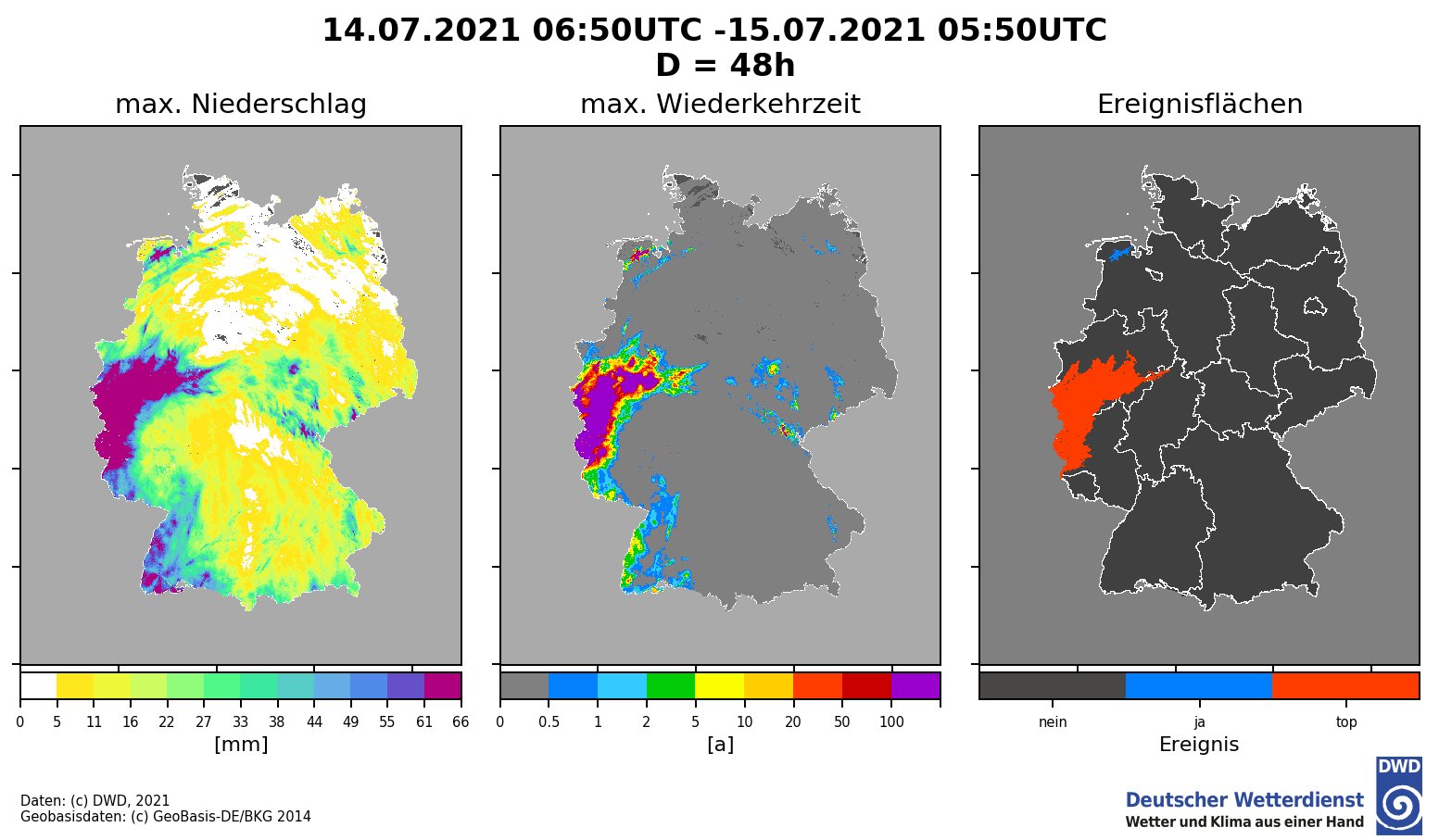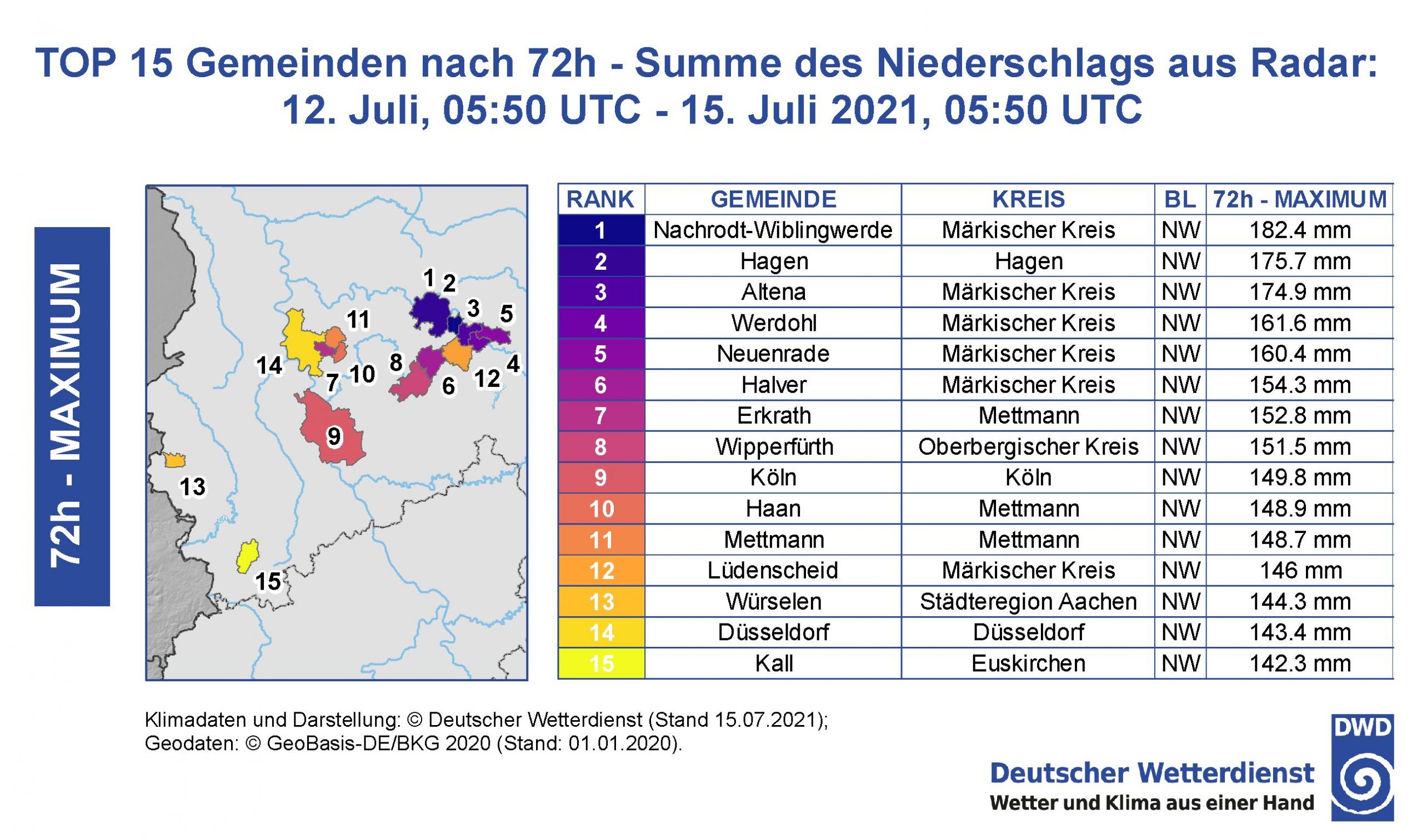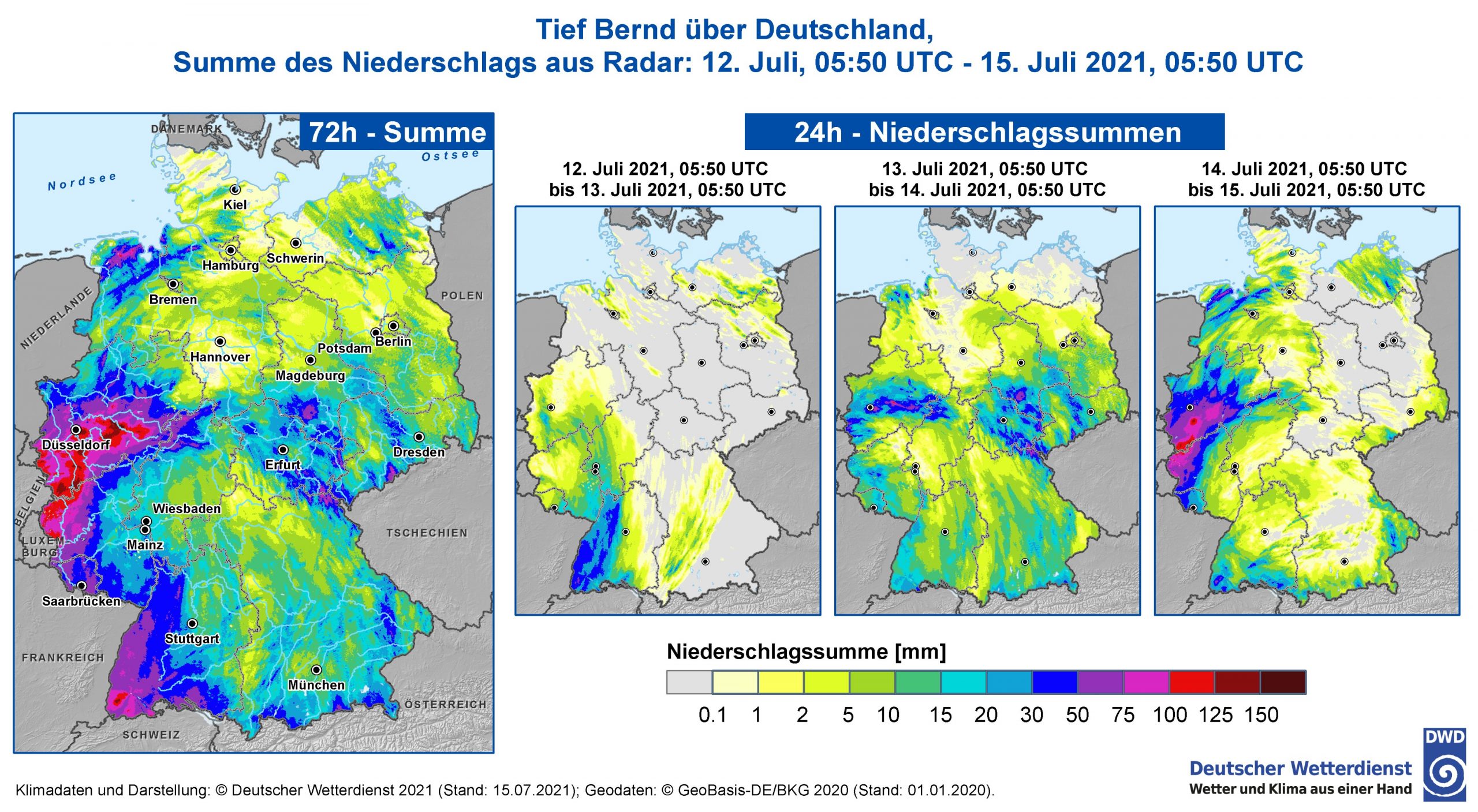More than a hundred dead, many missing, collapsed houses and flooded cities: The Germany The western monsoon is facing record flooding, resulting in heavy rainfall. While in these hours The finger is pointed at climate change, The question arises: will such disasters often affect Germany in the future?
According to German Weather Service The current weather conditions are partly due to low pressure. “HoldingIn West Germany: It is surrounded by high pressure, so very humid air cannot escape, explained DWT meteorologist Marco Manita. “This weather has become more common in recent years“It simply came to our notice then. In the opposite case – when there is a high pressure area “Surrounded“From low pressure – extreme heat and drought occur.
Second Manita, The heaviest rainfall was recorded in a wide belt from Sourland to Percussion Land and Eiffel, a large part of Cologne / Ban extending to the border of Luxembourg.
In the Rhinebach-Dodenfeld (Rhine-Seek-Greece in northern Rhine-Westphalia) 158 liters per square meter were found in 24 hours – most of which fell within a short period of time.
The German Meteorological Agency provided rainfall data, and according to official data reported by Deutsche Veterian, they fell within 72 hours
- 182.4 mm. Rain in Nachrod-Wiplingwerd
- 175.7 mm. Rain in Hagen
- 174.9 mm. Rain in Altena
- 161.6 mm. Rain on Vertol
- 160.4 mm. Rain in the neonrate
According to experts, the storm has been around for more than 100 years with a return time (Based on the amount of rainfall recorded in 48 hours), i.e., statistically and meteorologically, such rainfall occurs once in 100 years or less.
Second Peter Hoffman of Botstam Institute for Climate Impact Research, Two effects of global warming affect the frequency of such extreme events: on the one hand, at higher temperatures more water evaporates, and the warmer atmosphere can store more moisture. It supports high levels of rainfall. In addition, weather conditions can last a long time in a region. There is a global phenomenon behind it: the atmosphere does not heat up evenly, but more at the poles than the equator, which reduces the large temperature difference between these two regions. The result is what is known as the jet stream, which acts as a high-altitude air group around the Northern Hemisphere. This indicates that weather conditions can stay in one place for long periods of time and create extreme conditions. “The problem is not time, but the fact that it lasts a long time“, Hoffman says.
According to the National Climate Report, rainfall varies from year to year. Average annual rainfall in Germany increased by 66 mm from 1881, or by 8% over the reference period of 1961-1990 (continuous, mainly irregular increase).
Although the amount of total rainfall Germany A little bit has changed in recent decades, another indicator has changed, Hoffman noted: the same amount of rain falls on the lowest days of the year, and “When it falls, it is very intense“.
 The Press Stories
The Press Stories



